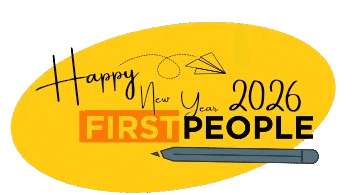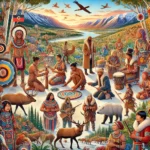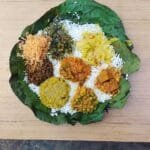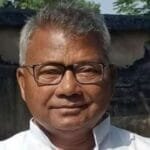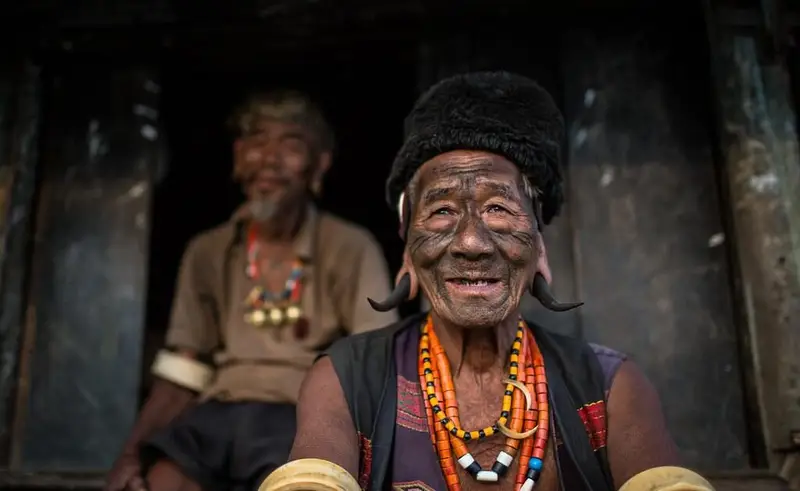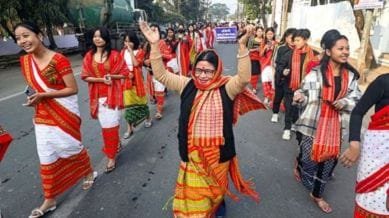“First people” generally refers to Indigenous communities who were the original inhabitants of a particular region. These groups represent diverse cultures, languages, and traditions deeply tied to the history of human civilization. Here’s an exploration of the term, its significance, and its relevance in today’s world.
Origins of the Term “First People”
The term “First People” is synonymous with “Indigenous Peoples,” “Aboriginal Peoples,” or “Native Peoples.” It is widely used to recognize the historical presence of communities who lived in specific regions long before colonization, migration, or invasion by other populations. These communities often have oral traditions, spiritual practices, and unique cultural systems that distinguish them from modern industrial societies.
Global Perspective on First Peoples
- Africa: The Birthplace of Humanity
Africa is considered the cradle of humanity, where the earliest humans emerged. Indigenous communities such as the San (Bushmen) of Southern Africa and the Pygmies of Central Africa represent some of the most ancient cultures on Earth. Their lifestyles, predominantly based on hunting and gathering, provide insights into human survival strategies from prehistoric times.
- The Americas
The First Peoples of the Americas, often referred to as Native Americans or First Nations, include a vast array of cultures, such as the Iroquois, Cherokee, Aztec, Maya, and Inca. These groups developed advanced agricultural techniques, complex political systems, and rich spiritual traditions long before European colonization.
- Asia
Asia is home to numerous Indigenous groups such as the Adivasis of India, the Orang Asli of Malaysia, and the Mongolian tribes of Central Asia. In India, Adivasis like the Santhal, Munda, and Gond tribes are considered First Peoples. Their traditions and practices remain a crucial part of India’s cultural mosaic.
- Australia and Oceania
The Aboriginal Australians and the Torres Strait Islanders are among the world’s oldest continuous cultures, with histories stretching back over 65,000 years. The Indigenous Peoples of Oceania, including the Maori of New Zealand and various Polynesian, Micronesian, and Melanesian groups, also have rich cultural legacies.
- Europe
Though Europe is often associated with modern industrial societies, it is home to Indigenous groups such as the Sámi of Scandinavia. The Sámi have maintained their cultural practices, such as reindeer herding, despite centuries of assimilation pressures.
Cultural Contributions of First Peoples
First Peoples have contributed immensely to the world’s cultural, scientific, and environmental heritage:
Language Diversity: Indigenous languages are repositories of knowledge, philosophy, and worldview. They shape how communities interact with their environment.
Traditional Knowledge: Indigenous ecological practices, such as sustainable farming and herbal medicine, have informed modern science.
Art and Spirituality: Their art, music, and spiritual beliefs are deeply intertwined with nature, often celebrating interdependence with the environment.
Challenges Faced by First Peoples
Despite their rich heritage, First Peoples have faced numerous challenges over centuries:
- Colonization: The arrival of colonial powers often led to land dispossession, forced assimilation, and cultural erasure.
- Economic Marginalization: Many Indigenous communities remain among the most economically disadvantaged groups in the world.
- Loss of Language and Culture: The imposition of dominant languages and religions has threatened Indigenous languages and traditions.
- Environmental Degradation: Many First Peoples are guardians of biodiversity, but deforestation, mining, and climate change have severely impacted their homelands.
- Political Exclusion: They are often underrepresented in political processes that determine their future.
Movements for Recognition and Rights
Globally, Indigenous communities have organized to demand recognition, rights, and reparations:
The United Nations Declaration on the Rights of Indigenous Peoples (UNDRIP): Adopted in 2007, this declaration outlines the rights of Indigenous Peoples to self-determination, land, and culture.
Land Back Movement: This movement advocates the return of ancestral lands to Indigenous communities.
Cultural Revitalization: Efforts to revive Indigenous languages, arts, and traditions are gaining momentum worldwide.
India’s First People: Adivasis
In India, the term Adivasi (meaning “original inhabitants”) refers to over 700 Scheduled Tribes. These groups, which include the Santhal, Munda, Gond, Bhil, and Khasi, are often referred to as the country’s First Peoples. Their contributions include:
Cultural Heritage: Adivasi music, dance, and festivals like Sarhul and Karma enrich India’s cultural diversity.
Environmental Stewardship: Adivasis have lived sustainably in forests, practicing conservation long before modern environmental movements.
Challenges: Despite constitutional protections, Adivasis face displacement due to industrial projects, inadequate representation, and socioeconomic marginalization.
Relevance of First Peoples Today
First Peoples are not just custodians of ancient traditions; they are vital participants in contemporary global issues:
- Climate Action: Indigenous knowledge plays a critical role in combating climate change. Their practices of sustainable agriculture and forest management offer models for resilience.
- Social Justice: The struggles of First Peoples for land rights and equality inspire broader movements for human rights and social equity.
- Cultural Diversity: In an increasingly globalized world, preserving Indigenous cultures counters the homogenization of identities.
Steps Toward a Just Future
Recognizing and honoring the contributions of First Peoples requires collective effort:
Education: Integrating Indigenous history and culture into mainstream education can foster greater respect and understanding.
Legal Protections: Stronger laws are needed to safeguard Indigenous land, language, and cultural rights.
Inclusive Development: Policies must ensure that development projects do not displace Indigenous communities or exploit their resources.
Empowerment: Supporting Indigenous leadership in politics, science, and culture can amplify their voices in decision-making.
The “First People” embody the resilience and diversity of human civilization. Their histories, traditions, and wisdom are invaluable not only for understanding our past but also for shaping a sustainable future. While they face significant challenges, there is a growing global movement to recognize their rights and contributions. By respecting and learning from First Peoples, humanity can move closer to a world that values cultural diversity, social justice, and environmental harmony.
